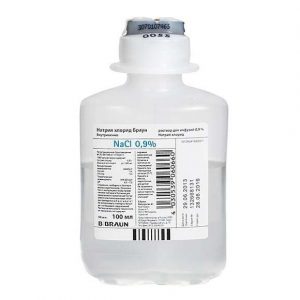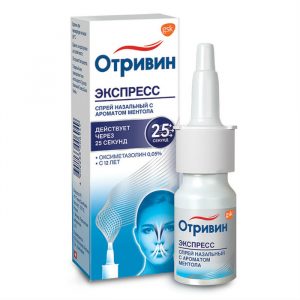Description
Release form
Enteric-coated tablets, 500 mg.
10 tablets per blister of PA / PVC / AL and aluminum foil. 1 or 2 blisters along with instructions for use are placed in a cardboard box.
Indications
Intrahepatic cholestasis in precirrhotic and cirrhotic conditions, which can occur with the following diseases:
– fatty liver
– chronic hepatitis
– toxic liver damage of various etiologies, including alcoholic, viral, medicinal (antitumor antibiotics, anti-tuberculosis and antiviral drugs, tricyclic antidepressants, oral contraceptives)
– chronic stoneless cholecystitis
– cholangitis
– cirrhosis of the liver
– encephalopathy, associated with liver failure (alcohol, etc.).
Intrahepatic cholestasis in pregnant women.
Symptoms of depression.
Contraindications
Genetic disorders affecting the methionine cycle and / or causing homocystinuria and / or hyperhomocysteinemia (for example, deficiency of cystathionine beta-synthase, impaired cyanocobalamin metabolism).
Hypersensitivity to any component of the drug.
Age under 18 (medical experience in children is limited).
Precautions
Bipolar Disorders (see Special Instructions).
Pregnancy (I trimester) and the period of breastfeeding (see section “Use during pregnancy and during breastfeeding”).
Concomitant use with selective serotonin reuptake inhibitors (SSRIs), tricyclic antidepressants (such as clomipramine), as well as over-the-counter and herbal preparations containing tryptophan (see section Interaction with other medicinal products ).
Old age.
Renal failure.
Use in pregnancy and lactation
In clinical studies, it was shown that the use of ademetionine in the III trimester of pregnancy did not cause any undesirable effects.
The use of the drug Heptral ® in pregnant women in the I and II trimesters, as well as during breastfeeding, is possible only if the potential benefit to the mother outweighs the possible risk to the fetus or child.
Composition
Each tablet contains:
Active ingredient:
ademethionine 1,4-butanedisulfonate 949.0 mg (corresponding to 500 mg of ademethionine ion).
Excipients:
silicon dioxide colloidal – 5.50 mg,
microcrystalline cellulose – 118.00 mg,
carboxymethyl starch sodium (type A) – 22.00 mg,
magnesium stearate – 5.50 mg
coating shell:
acid and ethyl acrylate copolymer (1: 1) – 32.63 mg,
macrogol-6000 – 9.56 mg,
polysorbate-80 – 0.52 mg,
simethicone emulsion (30%) – 0.40 mg,
sodium hydroxide – 0.44 mg,
talcum powder – 21.77 mg.
Dosage and Administration
Inside. Tablets should be taken whole without chewing, preferably in the morning between meals.
Heptral® tablets should be removed from the blister just before oral administration. If the tablets have a color other than white to white with a yellowish tint (due to leaks in aluminum foil), Heptral® is not recommended.
Initial therapy
The recommended dose is 1025 mg / kg / day by mouth.
Depression
The usual starting dose is 500-800 mg / day, the total daily dose should not exceed 1600 mg.
Intrahepatic cholestasis / fatigue in chronic liver diseases
The usual initial dose is 500-800 mg / day, the total daily dose should not exceed 1600 mg.
Maintenance therapy: 500 or 800-1600 mg / day.
Heptral® therapy can be started with intravenous or intramuscular administration followed by the use of Heptral® in tablet form or immediately with the use of Heptral® in tablet form.
Elderly patients
Clinical experience with the use of the drug Heptral® did not reveal any differences in its effectiveness in elderly patients and younger patients. However, given the high likelihood of existing impaired liver, kidney, or heart function, other concomitant pathologies, or simultaneous therapy with other drugs, the dose of Heptral® should be selected with caution for elderly patients, starting with the lower limit of the dose range.
Renal failure
There is limited clinical data on the use of the drug Heptral® in patients with renal failure, and therefore caution is advised when using the drug Heptral® in such patients.
Hepatic insufficiency
The pharmacokinetics of ademetionine are similar in healthy volunteers and in patients with chronic liver disease.
Children
The use of the drug Heptral® in children is contraindicated (efficacy and safety have not been established).
Side effects of the digestive system: often – nausea, abdominal pain, diarrhea rarely – vomiting, dry mouth, esophagitis, dyspepsia, flatulence, gastrointestinal pain, gastrointestinal bleeding, liver colic.
From the nervous system: rarely – confusion, insomnia, dizziness, headache, paresthesia.
From the musculoskeletal system: rarely – arthralgia, muscle cramps.
From the urinary system: rarely – urinary tract infections.
From the skin: rarely – hyperhidrosis, itching, skin rash.
Local reactions: rarely – reactions at the injection site very rarely – reactions at the injection site, skin necrosis at the injection site.
Allergic reactions: rarely – anaphylactic reactions are very rare – Quincke’s edema, laryngeal edema.
Other: rarely – hot flashes, superficial phlebitis, asthenia, chills, flu-like symptoms, weakness, peripheral edema, hyperthermia.
Drug interaction
There is a report of a syndrome of excess serotonin in a patient, taking ademetionin and clomipramine.
This interaction is believed to be possible, and ademetionine should be used with caution with selective serotonin reuptake inhibitors, tricyclic antidepressants (such as clomipramine), as well as herbs and tryptophan-containing drugs.
Overdose
An overdose of heptral ® is unlikely.
In case of an overdose, monitoring the patient and symptomatic therapy is recommended.
Storage Conditions
In a dark place at a temperature of 15 ° C to 25 ° C.
Keep out of the reach and sight of children.
Expiration
3 years.
active substance
Ademethionine
Dosage form
tablet




